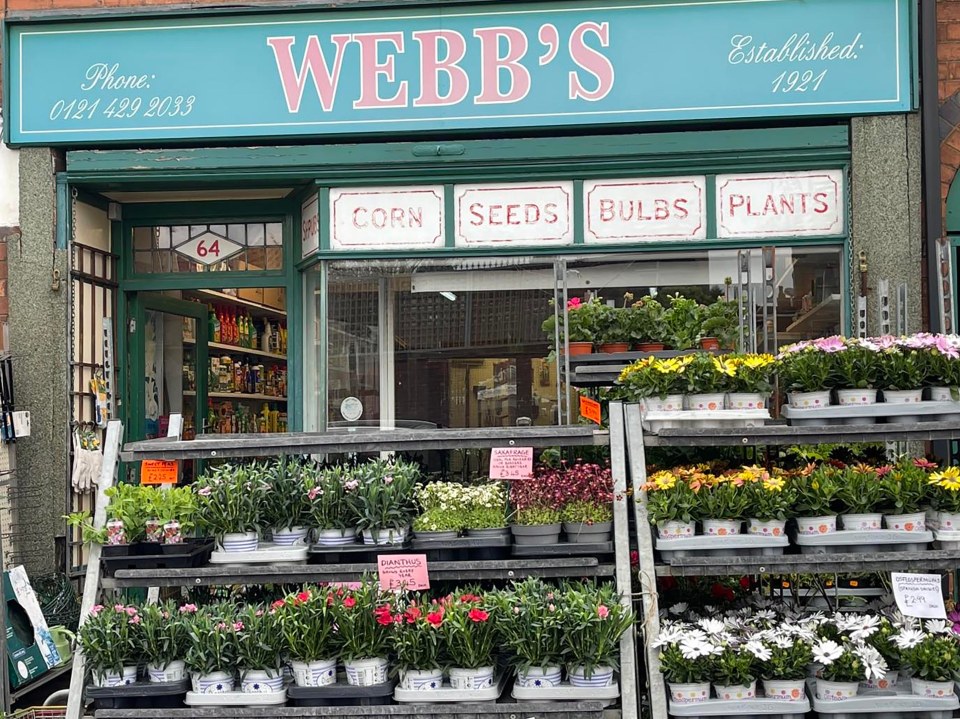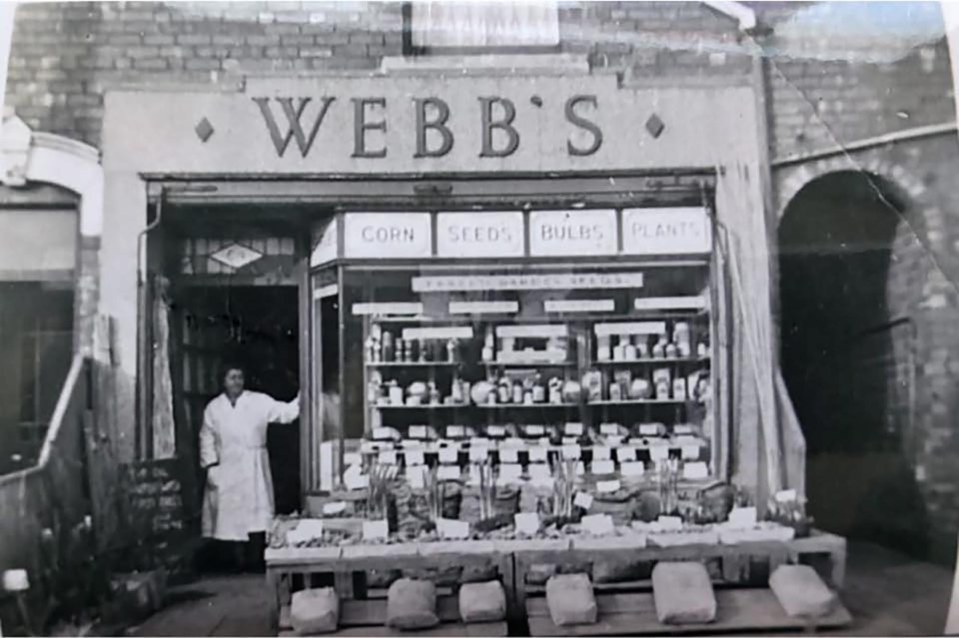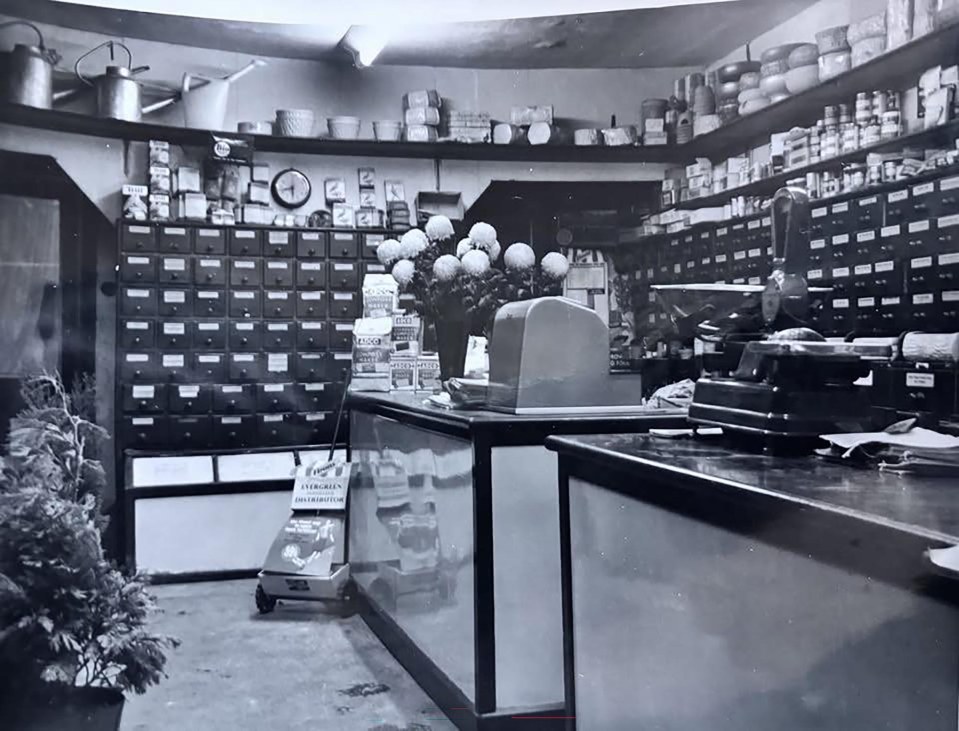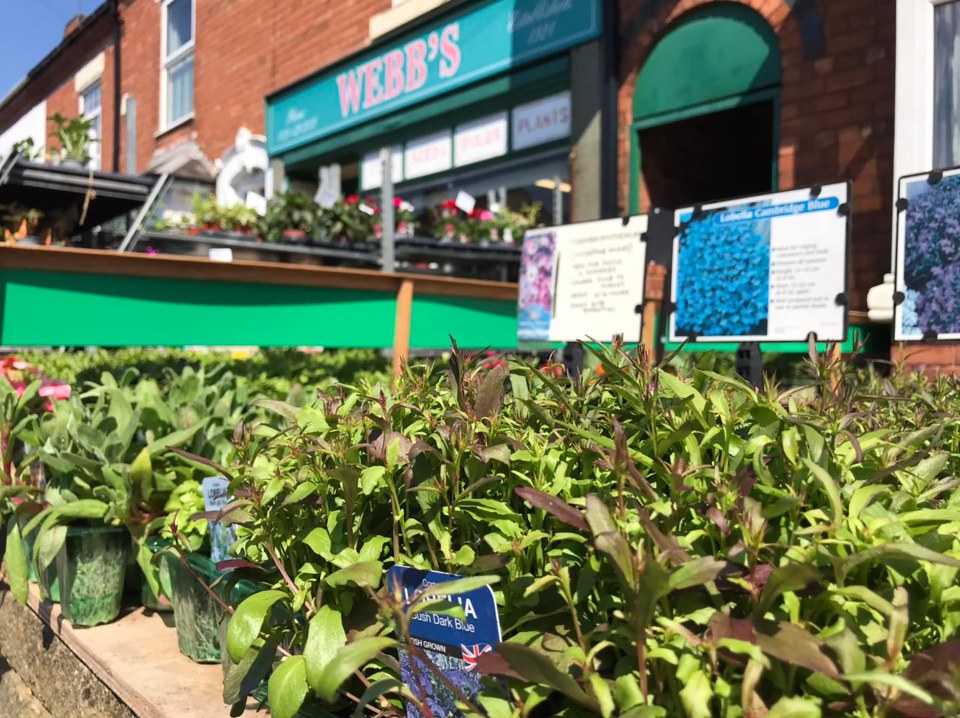SHOPPERS were devastated to learn a “charming” family-run garden centre is set to close after 105 years.
Locals cried “you’ll be missed” after the owners made their sad announcement this week.
Webb’s, located in Bearwood, West Mids., has been passed down through five generations who have lovingly run the gardening shop since 1921.
Pauline and Steve Webb shared the update on Facebook, which came as a shock to locals.
They said: “After more than a century of serving the Bearwood community, Webb’s of Bearwood, the cherished garden centre and gift shop located at 64–66 Three Shires Oak Road in Smethwick, is closing its doors.
“Owners Pauline and Steve have announced their retirement, bringing to an end a remarkable family-run business that has been part of local life since 1921.
“Since 1921 FIVE generations have worked at the shop, beginning with Oliver John Webb passing to John William Webb & Jenny Webb.
“Pauline and Steve brought up Samantha & Adam at the shop, and now Adam & Hannah with Lillian & Oliver…
“Webb’s has long been a go-to destination for gardening enthusiasts and gift seekers alike.
“The shop was renowned for its wide selection of seasonal plants, perennials, houseplants, and gardening tools, as well as its charming Walled Garden Gift Shop, which offered unique gifts, festive decorations and Christmas Trees.
“Customers frequently praised the shop for its friendly service and high-quality offerings.
“The closure of Webb’s marks not just the end of a business, but the conclusion of a beloved community institution.
“Its presence on the high street will be deeply missed by locals who valued its personal touch and commitment to quality.
“Pauline and Steve would like to thank all of the family and friends who have ever stepped in to help in busy times… working at Webbs makes you part of the family!
“As Pauline and Steve step into retirement, the community reflects on the legacy they’ve built over the past century.
“Their dedication and passion have left an indelible mark on Bearwood, and they leave behind a legacy of excellence and community spirit.
“The doors will close for the last time on Saturday 28th June….
“Thank you for your custom over the years, Pauline, Steve & the rest of the Webb/Davis family x”
One customer hailed the garden shop and penned: “Webbs is a delightful small garden centre, full of everything a gardener or beginner needs.
“The owners are always helpful and Pauline has an exquisite taste in plants that she orders in.”
Another wrote: “Wishing you both a Happy & long Retirement you both fully deserve it!”
A third added: “I can’t imagine Bearwood without you guys.”
“You’re going to be missed so much. What a fantastic family history. Enjoy your retirement,” penned another fan.
“End of an era. All the best for your retirement,” wrote someone else.
This follows a string of Dobbies garden centre closures this year.
A map has revealed where eight branches are shutting down, including in Rugby, Stapleton and Leicester, as well as Morpeth, Havant and Aylesbury.
The gardening specialist closed 16 stores as part of a restructuring plan late last year.
The eight branches confirmed to be closing this year, which The Sun exclusively revealed, have already started shutting.
Four stores in Rugby, Stapleton, Morpeth and Havant all shut on January 19, while a fifth closed in Hare Hatch on January 31.
A store in Leicester pulled down its shutters for the final time on February 14 while two others in Northampton and Aylesbury are shutting, but don’t have closure dates confirmed yet.
Dobbies is not the only DIY or garden centre retailer struggling across the UK.
High inflation coupled with a squeeze on consumers’ finances has meant people have less money to spend in the shops.
Why are retailers closing shops?
EMPTY shops have become an eyesore on many British high streets and are often symbolic of a town centre’s decline.
The Sun’s business editor Ashley Armstrong explains why so many retailers are shutting their doors.
In many cases, retailers are shutting stores because they are no longer the money-makers they once were because of the rise of online shopping.
Falling store sales and rising staff costs have made it even more expensive for shops to stay open.
The British Retail Consortium has predicted that the Treasury’s hike to employer NICs from April 2025, will cost the retail sector £2.3billion.
At the same time, the minimum wage will rise to £12.21 an hour from April, and the minimum wage for people aged 18-20 will rise to £10 an hour, an increase of £1.40.
In some cases, retailers are shutting a store and reopening a new shop at the other end of a high street to reflect how a town has changed.
The problem is that when a big shop closes, footfall falls across the local high street, which puts more shops at risk of closing.
Retail parks are increasingly popular with shoppers, who want to be able to get easy, free parking at a time when local councils have hiked parking charges in towns.
Many retailers including Next and Marks & Spencer have been shutting stores on the high street and taking bigger stores in better-performing retail parks instead.
In some cases, stores have been shut when a retailer goes bust, as in the case of Carpetright, Debenhams, Dorothy Perkins, Paperchase, Ted Baker, The Body Shop, Topshop and Wilko to name a few.
What’s increasingly common is when a chain goes bust a rival retailer or private equity firm snaps up the intellectual property rights so they can own the brand and sell it online.
They may go on to open a handful of stores if there is customer demand, but there are rarely ever as many stores or in the same places.
The Centre for Retail Research (CRR) has warned that around 17,350 retail sites are expected to shut down this year.
Major chain Homebase fell into administration in November, putting all its then 133 UK stores at risk.
CDS Superstores, which owns The Range and Wilko brands, stepped in and said it would take over up to 70 of these stores.
Last month, CDS confirmed it would reopen 50 of these 70 sites before the end of April.
But it means a number of Homebase stores are still at risk of closure, while others have been earmarked to shut.
Meanwhile, last Spring, Kingfisher, which owns B&Q and Screwfix, revealed its annual profits had slumped by more than a quarter.
The company reported a 25.1% drop in underlying pre-tax profits to £568million for the year to January 31, 2024.
The high street more broadly has struggled as well, due to high inflation and combined and the trend towards online shopping.
Recent data from the Centre for Retail Research revealed over 13,000 shops closed in 2024.
Meanwhile, it expects this figure to rise to more than 17,000 across the whole of 2025.
One major high street chain is closing a branch in just weeks as a closing down sale is launched and with eight other shops set to shut.
The Original Factory Shop (TOFS) is pulling down the shutters on the site on June 28 with shoppers left gutted.
Elsewhere, the sudden closure of a beloved pub and hotel has left loyal locals “gutted”.
The manager of the Rivelin Hotel in Sheffield broke the news that it would serve its last pint on 1 June.
And, a huge charity retailer is closing two stores in days after shuttering 27 this year.
Scope, which runs shops in England and Wales, is shutting branches in Exmouth and Bury on May 31.
RETAIL PAIN IN 2025
The British Retail Consortium has predicted that the Treasury’s hike to employer NICs will cost the retail sector £2.3billion.
Research by the British Chambers of Commerce shows that more than half of companies plan to raise prices by early April.
A survey of more than 4,800 firms found that 55% expect prices to increase in the next three months, up from 39% in a similar poll conducted in the latter half of 2024.
Three-quarters of companies cited the cost of employing people as their primary financial pressure.
The Centre for Retail Research (CRR) has also warned that around 17,350 retail sites are expected to shut down this year.
It comes on the back of a tough 2024 when 13,000 shops closed their doors for good, already a 28% increase on the previous year.
Professor Joshua Bamfield, director of the CRR said: “The results for 2024 show that although the outcomes for store closures overall were not as poor as in either 2020 or 2022, they are still disconcerting, with worse set to come in 2025.”
Professor Bamfield has also warned of a bleak outlook for 2025, predicting that as many as 202,000 jobs could be lost in the sector.
“By increasing both the costs of running stores and the costs on each consumer’s household it is highly likely that we will see retail job losses eclipse the height of the pandemic in 2020.”
















